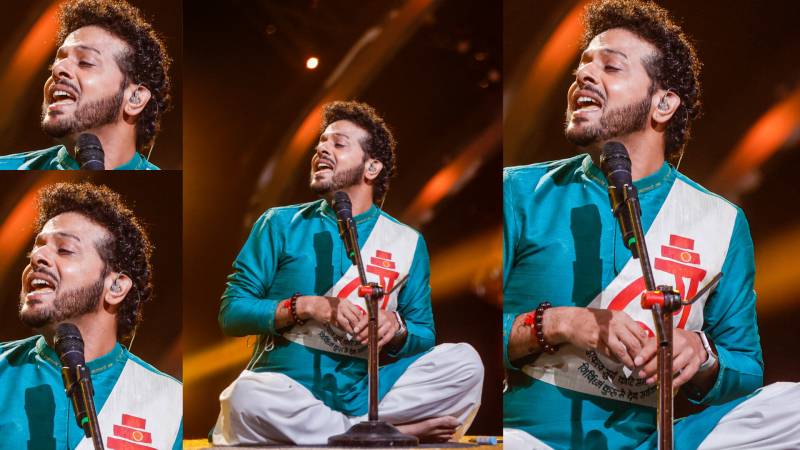In India, he was trained in the “gurukul system, where there is no syllabus, no fixed number of years … It’s an ongoing practice,” he said. He would get up at 3:45 in the morning and start singing.
The song that he shares with KQED is from the Marathi-language play Katyar Kaljat Ghusali (which translates to A Dagger Through the Heart), which was turned into a film by the same name. “This song actually kind of depicts the victory of music over egos,” Kale said.
In 2015 he received India’s National Film Award for Best Male Playback Singer for a classical piece he performed in Katyar Kaljat Ghusali. Since then he’s been focusing on his music. “I guess the cosmos allowed me the space that I wanted and things started to come together,” he said.
When he performs, Kale wants to make sure he holds on to the “cultural uniqueness of the traditional art,” but also “make sure that it still is contextually relevant for people today.” And he says that the Bay Area, because of its diversity and inclusion, is a wonderful seat to nurture what is unique and beautiful about Indian classical music.
Though he plays for people around the world, Kale sees a commonality through emotions. “The audiences are different when they start the experience of the musical performance. But all of us, irrespective of our cultural identity, if we are happy, we smile, if we are sad, we cry. And that is the baseline,” he says.
Kale thinks of himself as a tour guide, taking the audience through a musical journey. “I like to keep it light. I like to communicate with my audience, make sure that they are a part of my musical journey,” he said.
In 2011, he founded a nonprofit organization called Indian Classical Music and Arts Foundation, to focus on preserving and celebrating this form of music. Kale also teaches music to a number of students throughout the Bay Area.
For Kale, his music and practice are not confined to specific times of day. “It’s not something you do a certain amount of time or day or a few times a week, but it is a way of life,” he said.
He’ll be kicking off his U.S. tour with his first post-pandemic solo concert on March 18, 2023, at 5 p.m. at the Santa Clara Convention Center Theater.

